Shows
 Imiphindo kwaXhosaUkusongaXa sithetha ngemigobo/imigoqo, sithetha ngantoni? Sigoba ntoni? Kuvele ntoni?What is bent when we speak of imigoqo? What surfaces when we turn, twist, or fold? This episode dwells in the curves and contours of isiXhosa life—its gestures, refusals, rituals, and dress codes. Through sound, memory, and movement, we enter the layered world of imiphindo, where the fold is not only a form but a practice of returning, refiguring, and refusing reduction.Here, isiXhosa is not translated—it is lived, voiced, and held with care. The episode privileges a listening practice that...2025-05-2000 min
Imiphindo kwaXhosaUkusongaXa sithetha ngemigobo/imigoqo, sithetha ngantoni? Sigoba ntoni? Kuvele ntoni?What is bent when we speak of imigoqo? What surfaces when we turn, twist, or fold? This episode dwells in the curves and contours of isiXhosa life—its gestures, refusals, rituals, and dress codes. Through sound, memory, and movement, we enter the layered world of imiphindo, where the fold is not only a form but a practice of returning, refiguring, and refusing reduction.Here, isiXhosa is not translated—it is lived, voiced, and held with care. The episode privileges a listening practice that...2025-05-2000 min Spotlight on AfricaSpotlight on Africa: celebrating female empowerment for Women's History MonthThis week, Spotlight on Africa highlights women's empowerment across the continent, as March marks the beginning of Women's History Month, and International Women's Day on 8 March. Officially recognised by the United Nations in 1977, International Women's Day (IWD) originated from the labour movements of the early twentieth century.On 8 March, women around the world – and throughout the month in some countries – are celebrated and recognised for their social, cultural, economic and political achievements.The day also serves as a call to action to accelerate progress towards gender parity.In 2025, the United Nations will...2025-03-0425 min
Spotlight on AfricaSpotlight on Africa: celebrating female empowerment for Women's History MonthThis week, Spotlight on Africa highlights women's empowerment across the continent, as March marks the beginning of Women's History Month, and International Women's Day on 8 March. Officially recognised by the United Nations in 1977, International Women's Day (IWD) originated from the labour movements of the early twentieth century.On 8 March, women around the world – and throughout the month in some countries – are celebrated and recognised for their social, cultural, economic and political achievements.The day also serves as a call to action to accelerate progress towards gender parity.In 2025, the United Nations will...2025-03-0425 min RFISpotlight on Africa: celebrating women's empowerment for Women's History MonthThis week, Spotlight on Africa highlights women's empowerment across the continent, as March marks the beginning of Women's History Month, and International Women's Day on 8 March. Officially recognised by the United Nations in 1977, International Women's Day (IWD) originated from the labour movements of the early twentieth century.On 8 March, women around the world - and throughout the month in some countries - are celebrated and recognised for their social, cultural, economic, and political achievements.This occasion also serves as a call to action to accelerate progress towards gender parity.In 2025, the United Nations will mark International Women’s Day under the...2025-03-0425 min
RFISpotlight on Africa: celebrating women's empowerment for Women's History MonthThis week, Spotlight on Africa highlights women's empowerment across the continent, as March marks the beginning of Women's History Month, and International Women's Day on 8 March. Officially recognised by the United Nations in 1977, International Women's Day (IWD) originated from the labour movements of the early twentieth century.On 8 March, women around the world - and throughout the month in some countries - are celebrated and recognised for their social, cultural, economic, and political achievements.This occasion also serves as a call to action to accelerate progress towards gender parity.In 2025, the United Nations will mark International Women’s Day under the...2025-03-0425 min The Academic Citizen68. Imiphindo kwaXhosaSimilar to spoken and written language, clothing conveys important symbolic meaning and serves as a creative space for preserving daily traditions. In this episode, we highlight indigenous language and knowledge systems with independent fashion practitioner, researcher, and archivist Siviwe James. Through the use of sound, we emphasize the significance of traditional clothing as primary cultural materials, allowing for a deeper exploration of history and culture, particularly in relation to isintu and intlonipho. Listen to the episode on our website or on all streaming platforms. Come with us.2024-08-2219 min
The Academic Citizen68. Imiphindo kwaXhosaSimilar to spoken and written language, clothing conveys important symbolic meaning and serves as a creative space for preserving daily traditions. In this episode, we highlight indigenous language and knowledge systems with independent fashion practitioner, researcher, and archivist Siviwe James. Through the use of sound, we emphasize the significance of traditional clothing as primary cultural materials, allowing for a deeper exploration of history and culture, particularly in relation to isintu and intlonipho. Listen to the episode on our website or on all streaming platforms. Come with us.2024-08-2219 min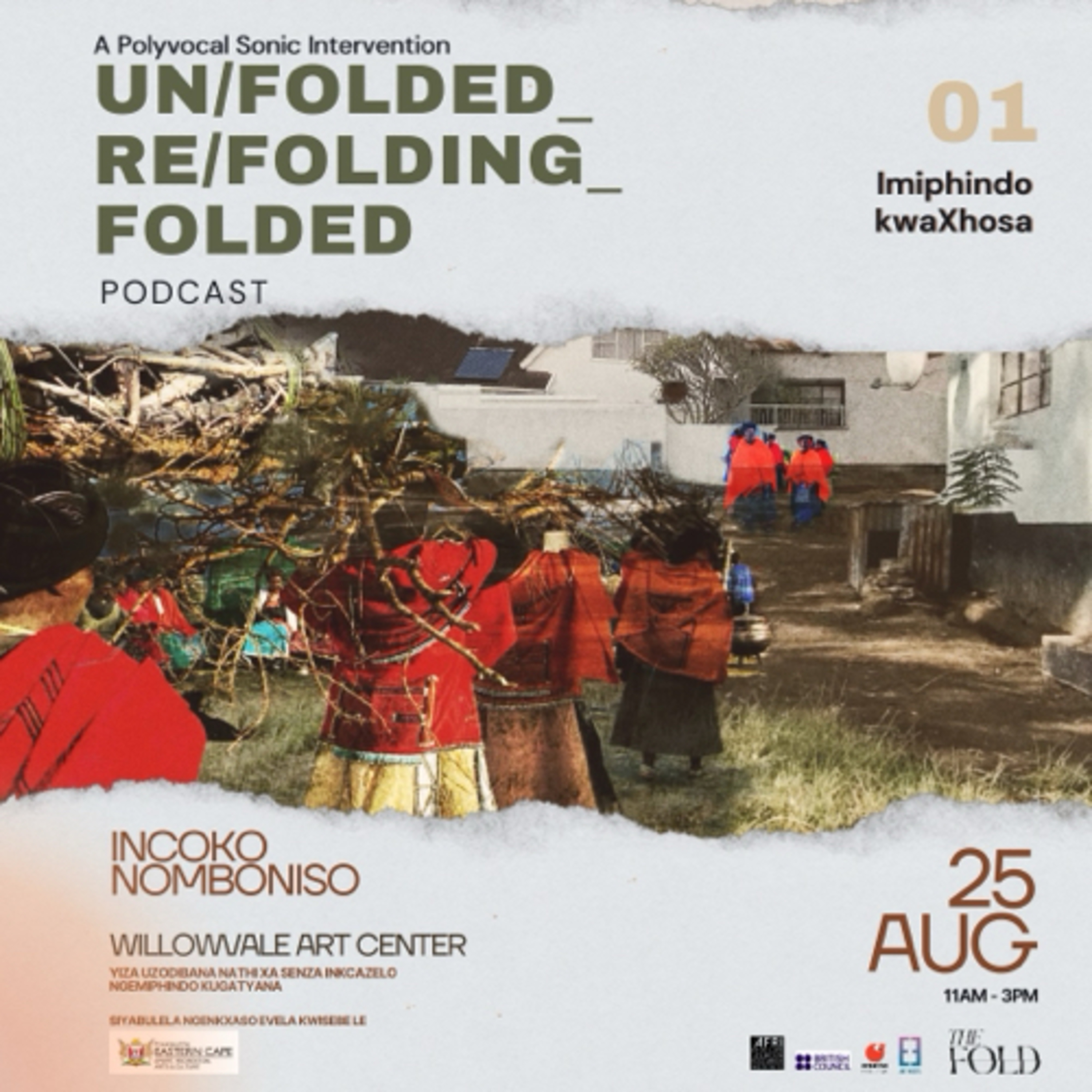 Imiphindo kwaXhosaBonus: Incoko nomboniso kuGatyanaOn 25 August 2023, the UN/FOLDING_RE/FOLDING_FOLDED: Imiphindo kwaXhosa production team returned kuGatyana to host a listening session with the podcast’s co-authors and their community. What began as a simple gesture of return became a deeply felt gathering — an act of sonic repair and collective affirmation. The day reminded us that the most powerful forms of cultural work are not just heard, but held, felt, and shared.Guided by Willowvale Arts Center (W.A.C) Manager Lukhanyo Muluse and curator Azola Krweqe, the session reignited a shared sense of purpose and underscored W.A...2023-12-0602 min
Imiphindo kwaXhosaBonus: Incoko nomboniso kuGatyanaOn 25 August 2023, the UN/FOLDING_RE/FOLDING_FOLDED: Imiphindo kwaXhosa production team returned kuGatyana to host a listening session with the podcast’s co-authors and their community. What began as a simple gesture of return became a deeply felt gathering — an act of sonic repair and collective affirmation. The day reminded us that the most powerful forms of cultural work are not just heard, but held, felt, and shared.Guided by Willowvale Arts Center (W.A.C) Manager Lukhanyo Muluse and curator Azola Krweqe, the session reignited a shared sense of purpose and underscored W.A...2023-12-0602 min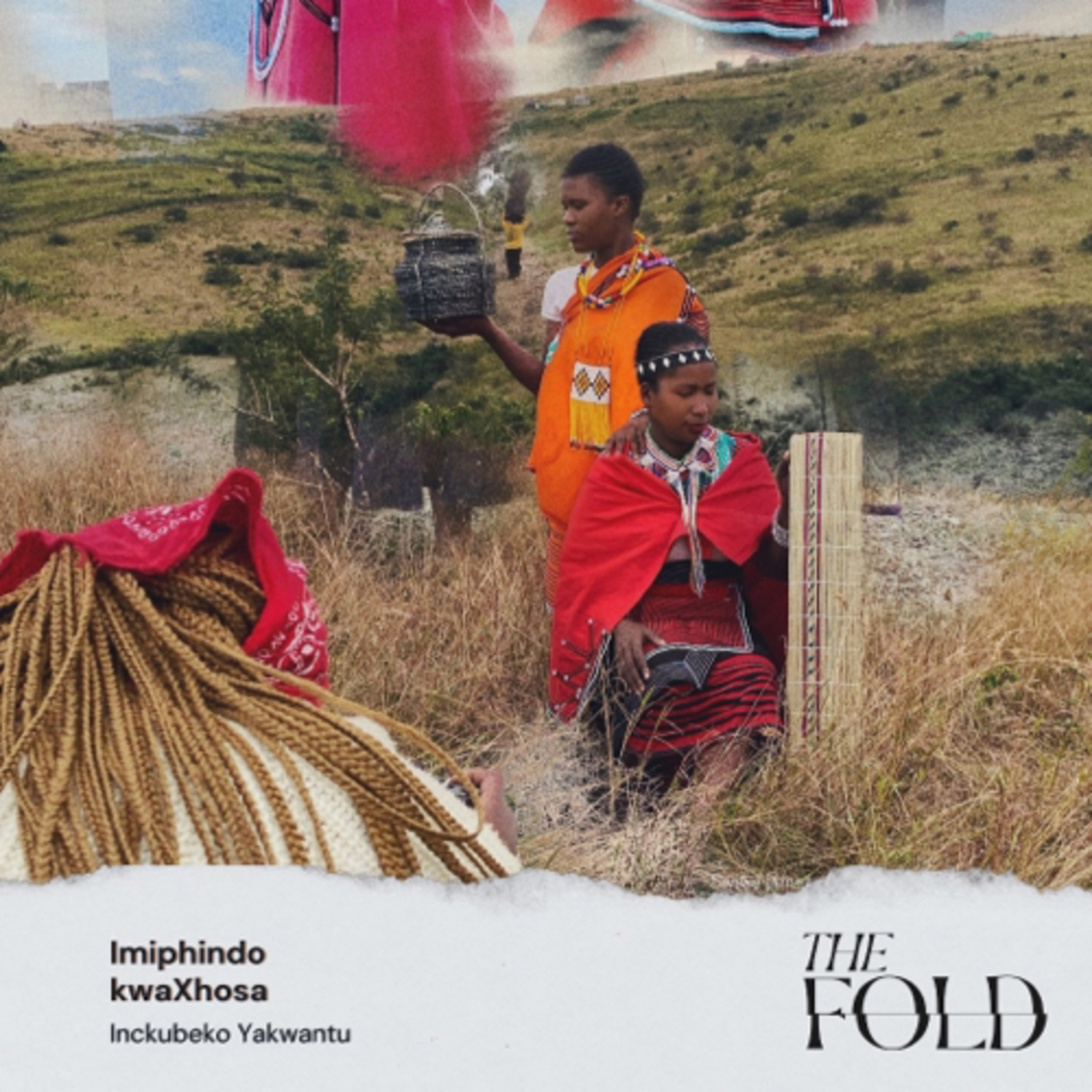 Imiphindo kwaXhosaEpisode 10: Inkcubeko YakwantuIn this episode, we spend time with uAzola Krweqe, a curator and visual practitioner whose work spans Cape Town and her paternal home in Nkanga, Willowvale. Through her photographic inquiries, Azola explores how her subjects choose to be seen, inviting us to consider the power and freedom inherent in visibility. Her return home has nurtured a deepening relationship with her culture and ancestral practices—connections often obscured when living in urban spaces. Through Azola’s personal story, we are invited to reimagine isintu as a vital foundation for black practitioners’ thinking and creative expression.Inkcub...2023-10-0909 min
Imiphindo kwaXhosaEpisode 10: Inkcubeko YakwantuIn this episode, we spend time with uAzola Krweqe, a curator and visual practitioner whose work spans Cape Town and her paternal home in Nkanga, Willowvale. Through her photographic inquiries, Azola explores how her subjects choose to be seen, inviting us to consider the power and freedom inherent in visibility. Her return home has nurtured a deepening relationship with her culture and ancestral practices—connections often obscured when living in urban spaces. Through Azola’s personal story, we are invited to reimagine isintu as a vital foundation for black practitioners’ thinking and creative expression.Inkcub...2023-10-0909 min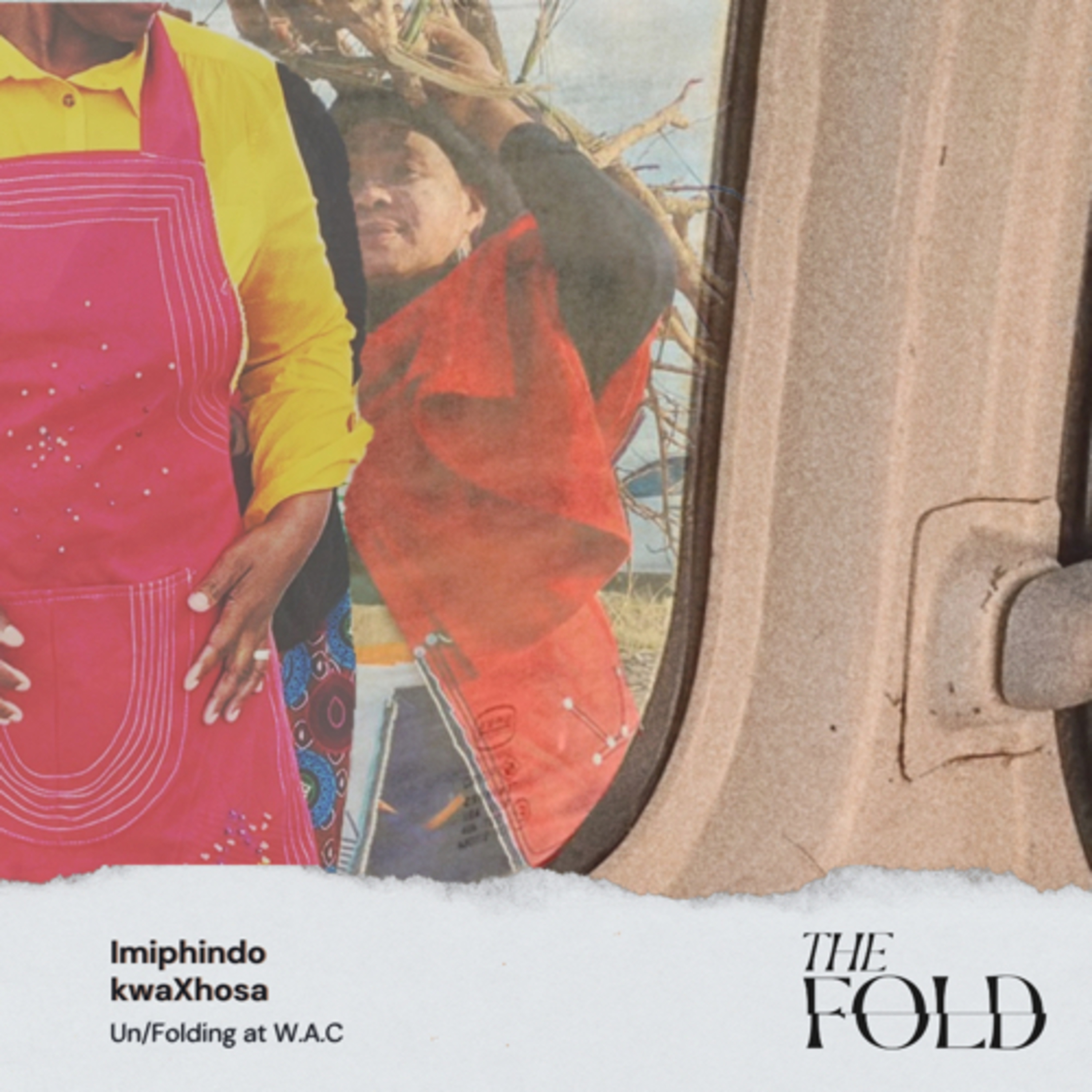 Imiphindo kwaXhosaEpisode 9: UN/Folding at the Willowvale Arts Center (W.A.C)The Willowvale Arts Center is a creative hub located onthe outskirts of the remote town of Willowvale. Established in 2008 by the Department of Sports, Arts and culture, the uniquely designed building is the host site for creatives kuGatyana (Willowvale) and Mbhashe Municipality at large, where many come to learn about and explore innovative methods that can aid them in growing in the local creative economy in the Eastern Cape. The center (W.A.C) functions as an inclusive space for the community to meet at, share and hold (archive) important cultural dialogues/stories/performances as means of engaging with...2023-10-0903 min
Imiphindo kwaXhosaEpisode 9: UN/Folding at the Willowvale Arts Center (W.A.C)The Willowvale Arts Center is a creative hub located onthe outskirts of the remote town of Willowvale. Established in 2008 by the Department of Sports, Arts and culture, the uniquely designed building is the host site for creatives kuGatyana (Willowvale) and Mbhashe Municipality at large, where many come to learn about and explore innovative methods that can aid them in growing in the local creative economy in the Eastern Cape. The center (W.A.C) functions as an inclusive space for the community to meet at, share and hold (archive) important cultural dialogues/stories/performances as means of engaging with...2023-10-0903 min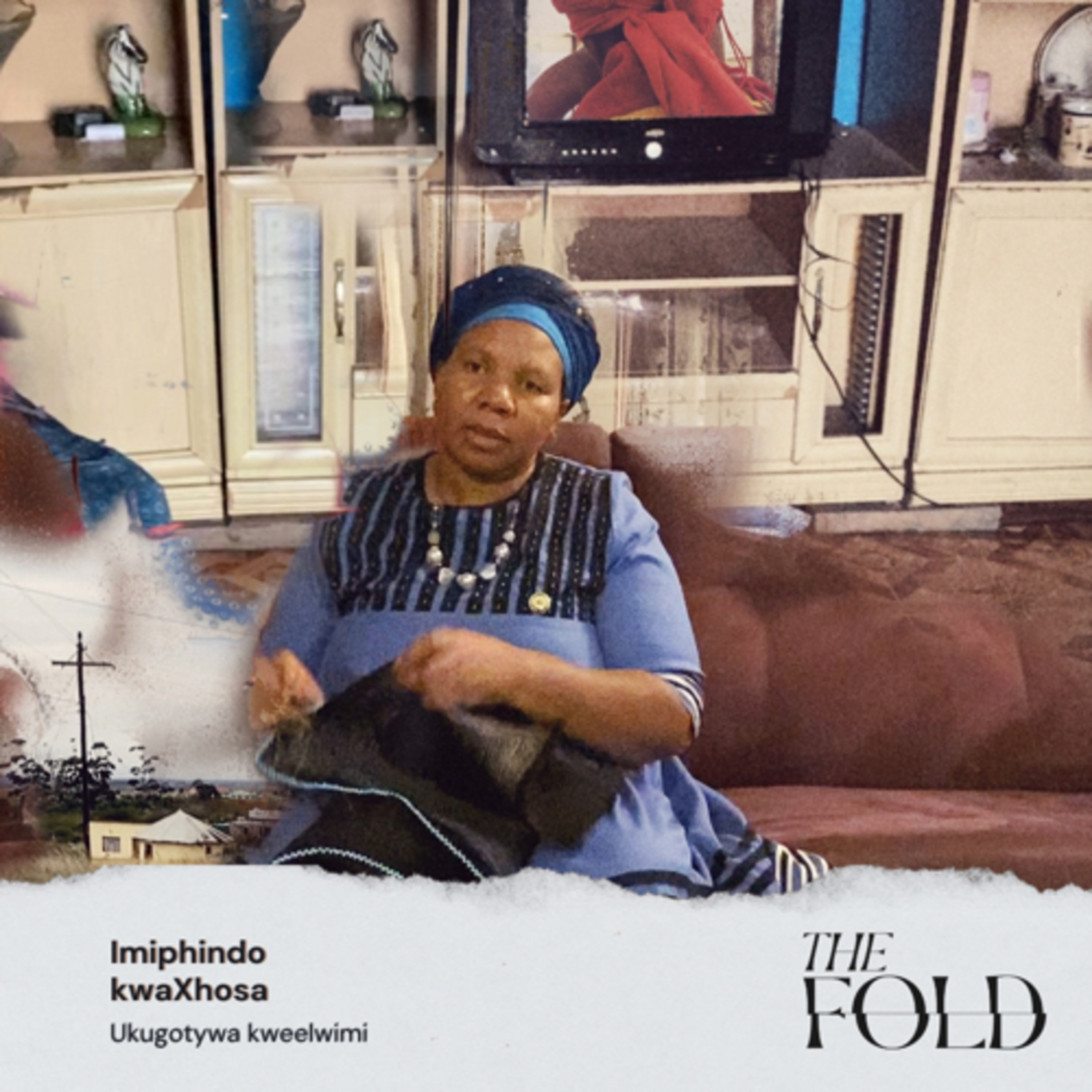 Imiphindo kwaXhosaEpisode 8: Ukugotywa kweelwimiWhat do the slippages of fashion look like? What happens to the voids that form between urban and rural, past and present, individual and communal? In this episode, we explore the folds and fissures in fashion’s fabric — where languages, locations, and aesthetics intersect and fold into one another, revealing alternative fashion knowledges and new genealogies that resist singular narratives.Guided by Ms Nobuhle James, an advisor of isiXhosa in the Eastern Cape and a teacher for the unknowing and forgotten, we trace the beginnings of fold language kwaXhosa. Nobuhle’s personal story opens a port...2023-09-3013 min
Imiphindo kwaXhosaEpisode 8: Ukugotywa kweelwimiWhat do the slippages of fashion look like? What happens to the voids that form between urban and rural, past and present, individual and communal? In this episode, we explore the folds and fissures in fashion’s fabric — where languages, locations, and aesthetics intersect and fold into one another, revealing alternative fashion knowledges and new genealogies that resist singular narratives.Guided by Ms Nobuhle James, an advisor of isiXhosa in the Eastern Cape and a teacher for the unknowing and forgotten, we trace the beginnings of fold language kwaXhosa. Nobuhle’s personal story opens a port...2023-09-3013 min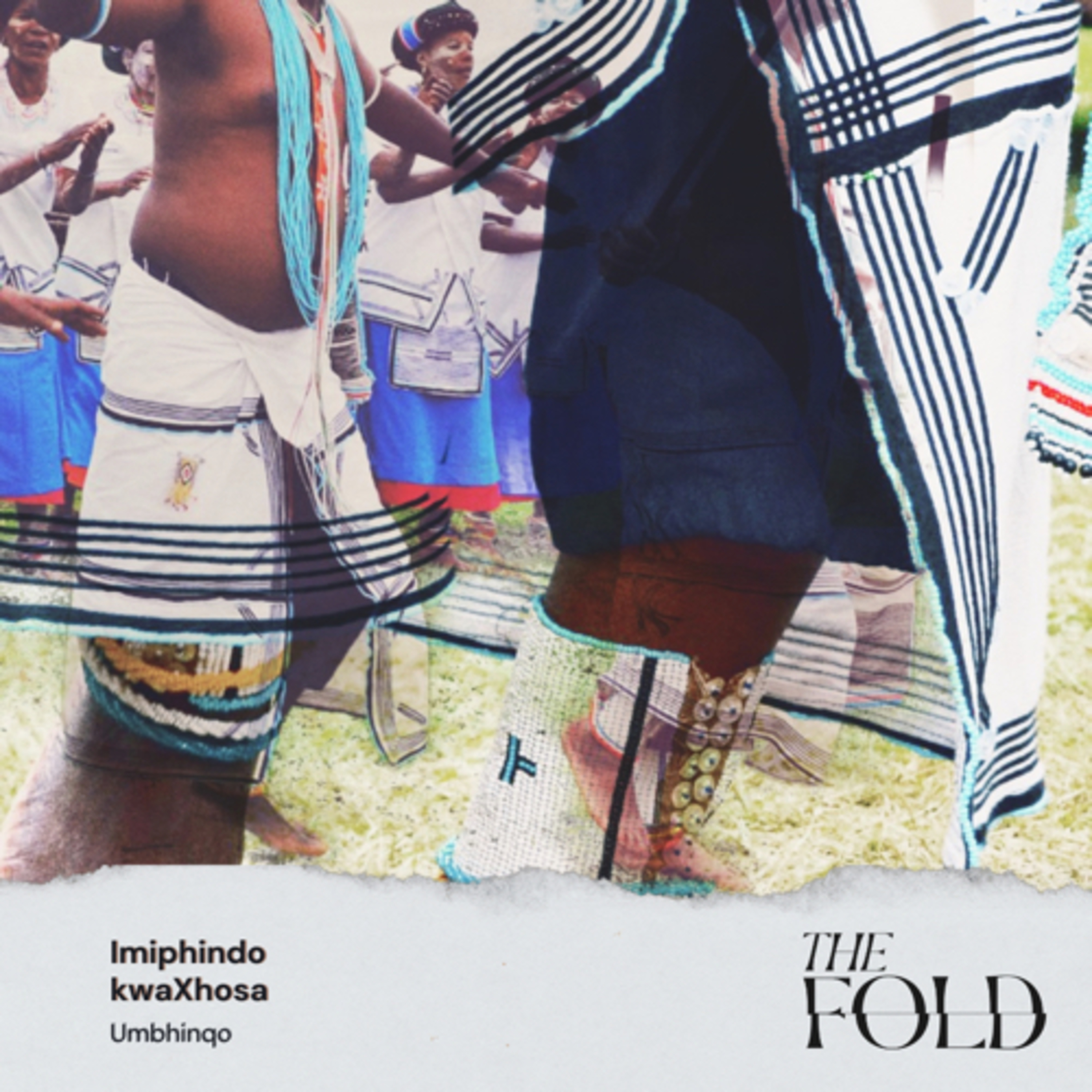 Imiphindo kwaXhosaEpisode 7: UmbhinqoUmbhinqo: Kubhinqa abatheni xa kutheni?Narrated by uMama Makholi, a revered maker at the Willowvale Arts Center, this episode brings us into the intricate folds of Xhosa dress practices—specifically umbhinqo and isishuba. With clarity and care, she details which folds adorn which body and for what occasion.Often associated with the feminine form, umbhinqo—the act of wrapping cloth around the body—extends far beyond gender. It is an embodied gesture of respect, a practice of reverence toward ancestry and social codes. With Mama Makholi as our guide, we com...2023-09-2405 min
Imiphindo kwaXhosaEpisode 7: UmbhinqoUmbhinqo: Kubhinqa abatheni xa kutheni?Narrated by uMama Makholi, a revered maker at the Willowvale Arts Center, this episode brings us into the intricate folds of Xhosa dress practices—specifically umbhinqo and isishuba. With clarity and care, she details which folds adorn which body and for what occasion.Often associated with the feminine form, umbhinqo—the act of wrapping cloth around the body—extends far beyond gender. It is an embodied gesture of respect, a practice of reverence toward ancestry and social codes. With Mama Makholi as our guide, we com...2023-09-2405 min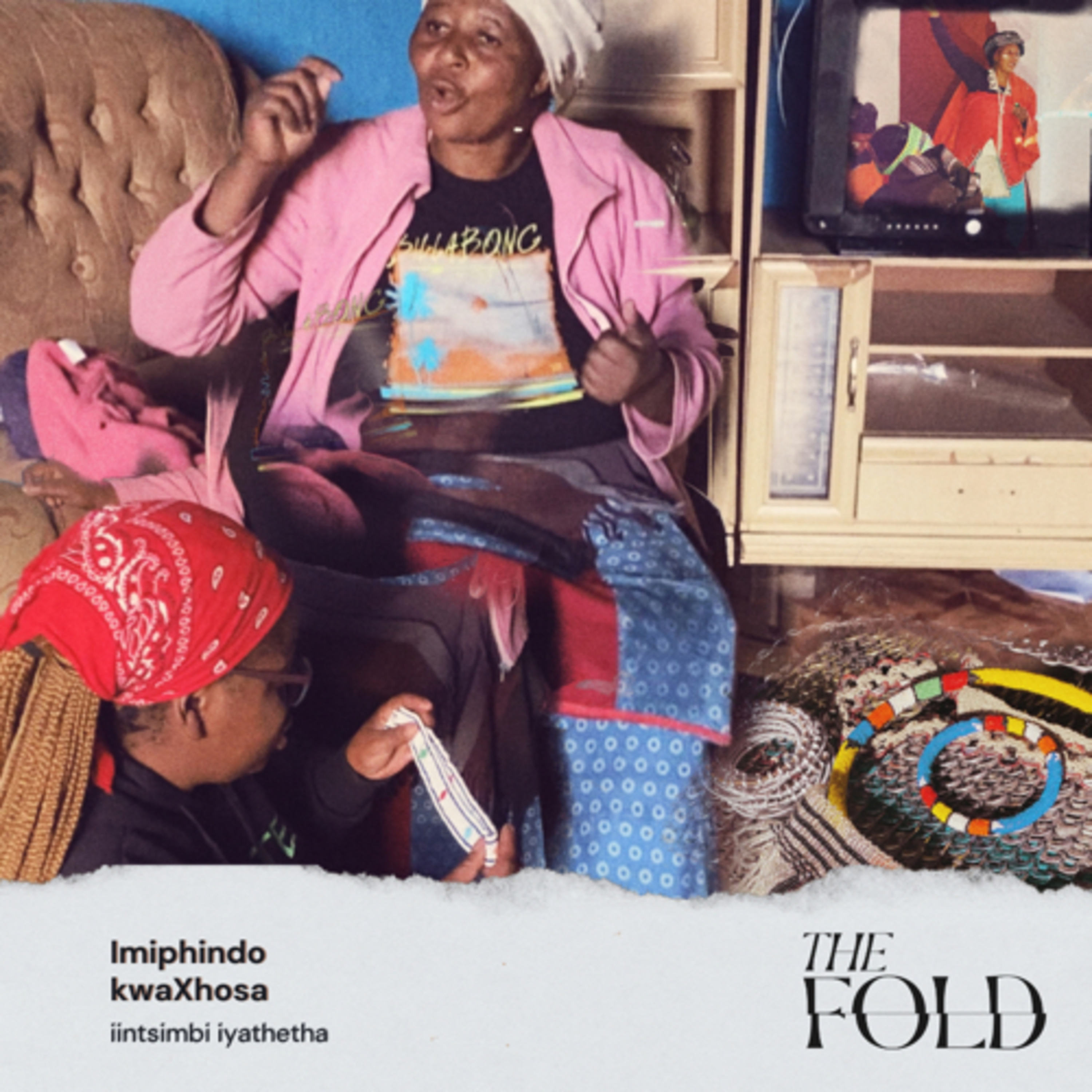 Imiphindo kwaXhosaEpisode 6: Iintsimbi iyathethaYonke into iyathetha. Netsimbi le iyathetha.This episode honours beadwork not simply as adornment, but as archive—a living, breathing language held in colour, thread, and form. We walk alongside uMama Nokhaya Jilingisa, a revered community elder and everyday knowledge-keeper, whose lifelong commitment to iintsimbi reveals how Xhosa epistemologies are preserved and passed through the hands of women, through the rigour of practice, and through the act of teaching.As a cultural educator and mentor, uMama Jilingisa has become a custodian of local memory. Her teachings on the making, me...2023-09-1707 min
Imiphindo kwaXhosaEpisode 6: Iintsimbi iyathethaYonke into iyathetha. Netsimbi le iyathetha.This episode honours beadwork not simply as adornment, but as archive—a living, breathing language held in colour, thread, and form. We walk alongside uMama Nokhaya Jilingisa, a revered community elder and everyday knowledge-keeper, whose lifelong commitment to iintsimbi reveals how Xhosa epistemologies are preserved and passed through the hands of women, through the rigour of practice, and through the act of teaching.As a cultural educator and mentor, uMama Jilingisa has become a custodian of local memory. Her teachings on the making, me...2023-09-1707 min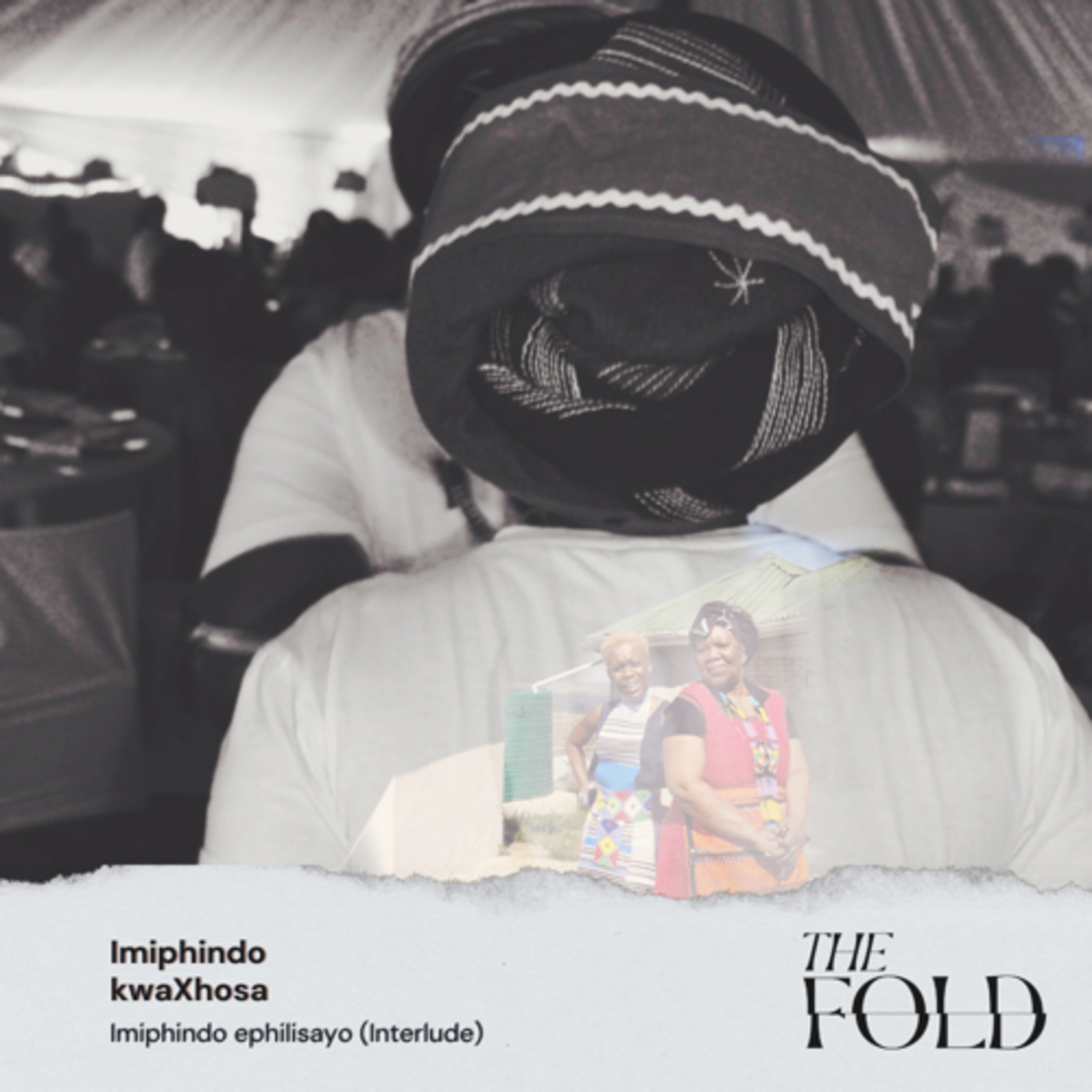 Imiphindo kwaXhosaEpisode 5: Imiphindo ephilisayo (interlude)What can creative practice offer a displaced spirit? How might making—through word, thread, voice, or movement—become a ritual of return?This interlude opens a soft space for pause and reflection. Through sonic fragments and field recordings, we begin to sense how creative work can function as ukubuyisa—a calling back of the self to place, memory, and community. For Black artists navigating dislocation, silence, or loss, imiphindo ephilisayo suggests that the fold can be medicinal: a site of re-stitching, remembering, and re-entry.This fragment does not seek to res...2023-09-1702 min
Imiphindo kwaXhosaEpisode 5: Imiphindo ephilisayo (interlude)What can creative practice offer a displaced spirit? How might making—through word, thread, voice, or movement—become a ritual of return?This interlude opens a soft space for pause and reflection. Through sonic fragments and field recordings, we begin to sense how creative work can function as ukubuyisa—a calling back of the self to place, memory, and community. For Black artists navigating dislocation, silence, or loss, imiphindo ephilisayo suggests that the fold can be medicinal: a site of re-stitching, remembering, and re-entry.This fragment does not seek to res...2023-09-1702 min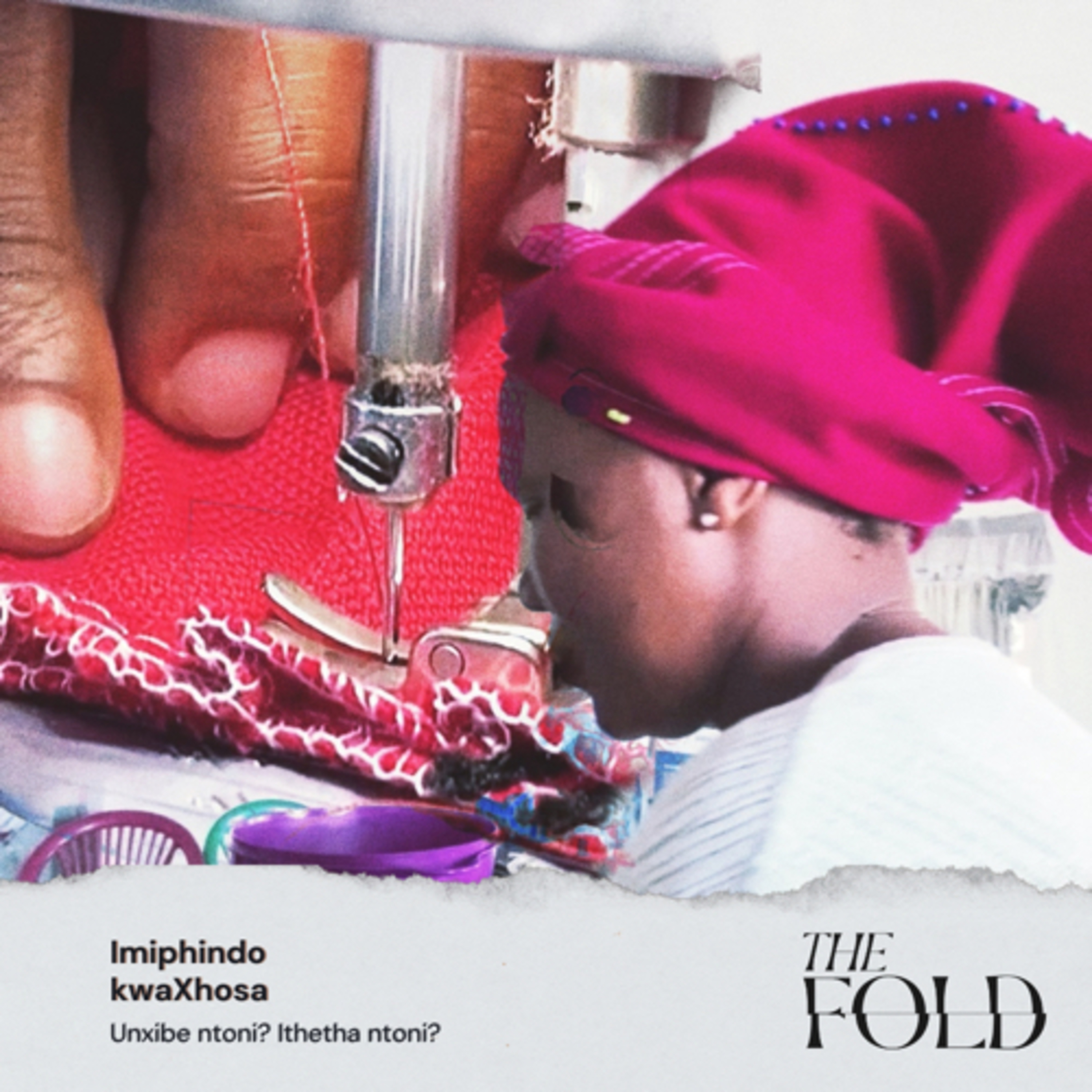 Imiphindo kwaXhosaEpisode 4: Unxibe ntoni? Ithetha ntoni?In this episode, we take up clothing as language—as a material vocabulary that speaks across generations. Guided by community elders and local Makers at the Willowvale Arts Center, we enter a space of listening and learning, where dress becomes a form of respect, relation, and remembrance.Sitting with the women of the Co-op, we become students in a place of deep knowledge. KuGatyana, we are reminded of isihlonipho—the ways of reverence—and how isinxibo (Xhosa dress) is never merely decorative. It is a practice of embodiment, a gesture of alignment with ancestral order...2023-09-1007 min
Imiphindo kwaXhosaEpisode 4: Unxibe ntoni? Ithetha ntoni?In this episode, we take up clothing as language—as a material vocabulary that speaks across generations. Guided by community elders and local Makers at the Willowvale Arts Center, we enter a space of listening and learning, where dress becomes a form of respect, relation, and remembrance.Sitting with the women of the Co-op, we become students in a place of deep knowledge. KuGatyana, we are reminded of isihlonipho—the ways of reverence—and how isinxibo (Xhosa dress) is never merely decorative. It is a practice of embodiment, a gesture of alignment with ancestral order...2023-09-1007 min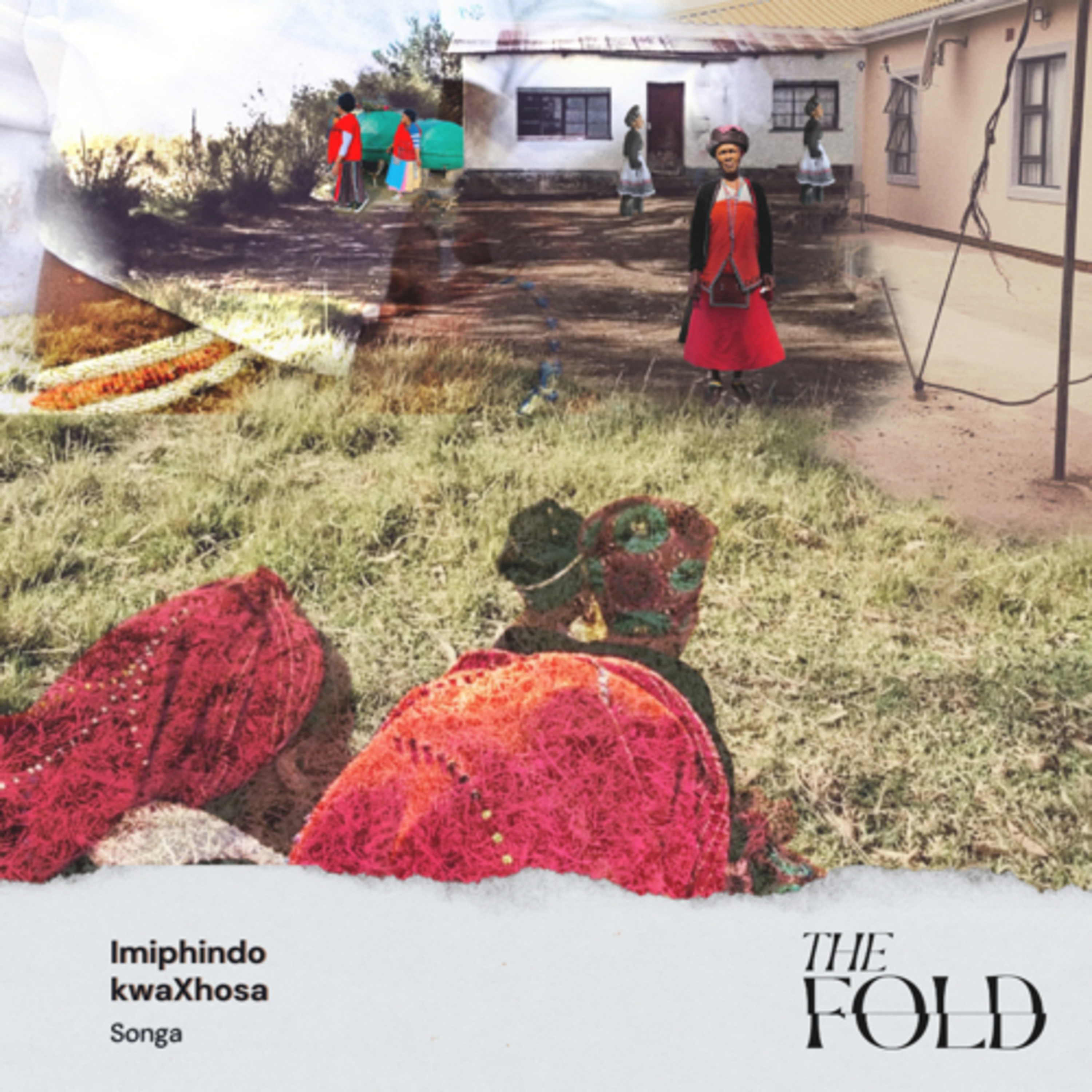 Imiphindo kwaXhosaSongaA bridge. A break. A spiral.This episode unfolds as a reflexive interlude—a moment of return and resonance. SONGA dwells in the sonic and poetic textures of isiXhosa, circling around the language of folds and the folding of language itself. Through the repetition of root sounds, phrases, and gestures, the episode becomes a kind of oral incantation—folding and unfolding the word songa until it becomes both action and atmosphere.Rather than explaining, this episode performs—letting the act of folding speak for itself. In this way, SONGA become...2023-09-1000 min
Imiphindo kwaXhosaSongaA bridge. A break. A spiral.This episode unfolds as a reflexive interlude—a moment of return and resonance. SONGA dwells in the sonic and poetic textures of isiXhosa, circling around the language of folds and the folding of language itself. Through the repetition of root sounds, phrases, and gestures, the episode becomes a kind of oral incantation—folding and unfolding the word songa until it becomes both action and atmosphere.Rather than explaining, this episode performs—letting the act of folding speak for itself. In this way, SONGA become...2023-09-1000 min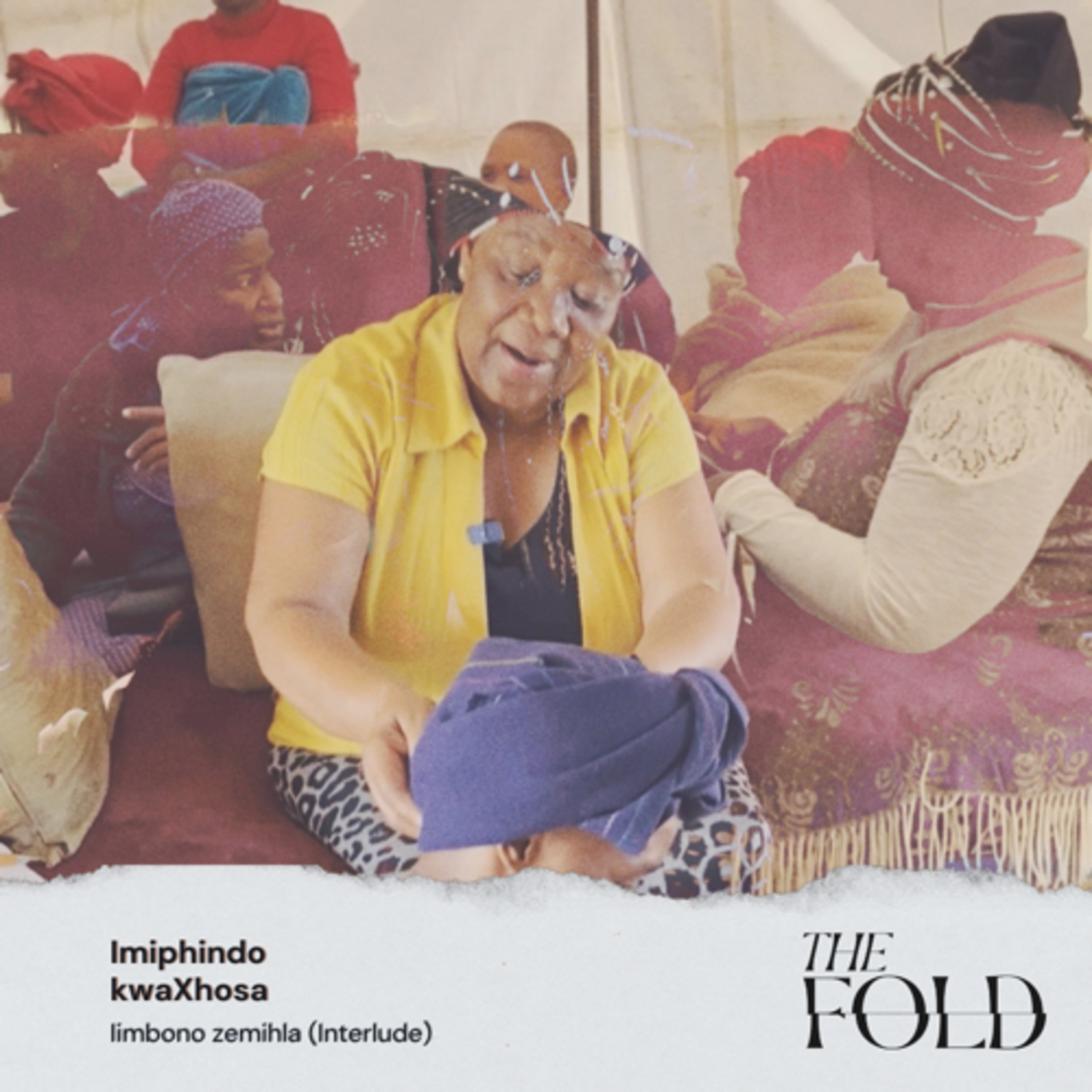 Imiphindo kwaXhosaEpisode 3: The Scene of DressThis episode marks a shift—from gathering and observing, to sensing and becoming. We begin to see how the folds of Xhosa dress and ritual are not merely symbolic, but pedagogical: they teach, they mark, they hold. Through a return to ritual space, our host meets the fabric of her own inheritance—not as a distant object of study, but as a living archive folded into the body.What emerges is a crossroads where personal becoming meets ancestral instruction. The Xhosa fold reveals itself not only in what is worn, but in what is felt...2023-09-0902 min
Imiphindo kwaXhosaEpisode 3: The Scene of DressThis episode marks a shift—from gathering and observing, to sensing and becoming. We begin to see how the folds of Xhosa dress and ritual are not merely symbolic, but pedagogical: they teach, they mark, they hold. Through a return to ritual space, our host meets the fabric of her own inheritance—not as a distant object of study, but as a living archive folded into the body.What emerges is a crossroads where personal becoming meets ancestral instruction. The Xhosa fold reveals itself not only in what is worn, but in what is felt...2023-09-0902 min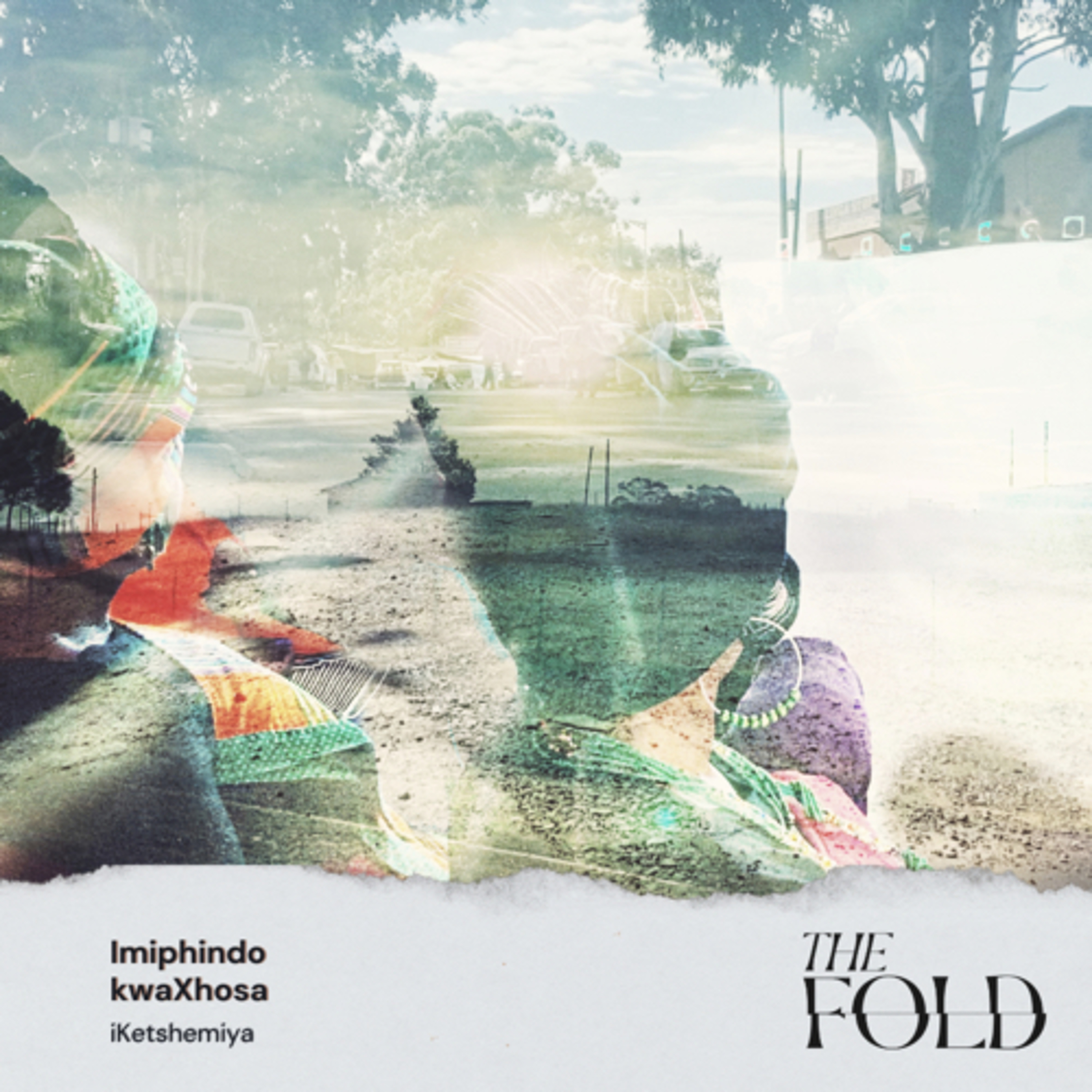 Imiphindo kwaXhosaEpisode 2: Imnyama ibenomgca omhlophe“Imnyama ibenomgca omhlophe.”In this textured episode, we are guided by uTat’ Mangaliso Jafta—community elder, social entrepreneur, and former MK operative—who walks with us through the streets of Willowvale, kuGatyana. As co-host and conversational anchor, uTat’ Jafta opens a thread that is both personal and political, inviting us to consider how dress codes such as iqhiya carry historical, social, and spiritual meaning across generations.Our inquiry begins with a simple provocation: ukhule wena kutwalwa iqhiya ezinjani? ooMama bakho, nikhule kunxitywa iqhiya ezinjani? Zibanjani? This unfolding gesture—posed to local residents—guides us into a...2023-09-0811 min
Imiphindo kwaXhosaEpisode 2: Imnyama ibenomgca omhlophe“Imnyama ibenomgca omhlophe.”In this textured episode, we are guided by uTat’ Mangaliso Jafta—community elder, social entrepreneur, and former MK operative—who walks with us through the streets of Willowvale, kuGatyana. As co-host and conversational anchor, uTat’ Jafta opens a thread that is both personal and political, inviting us to consider how dress codes such as iqhiya carry historical, social, and spiritual meaning across generations.Our inquiry begins with a simple provocation: ukhule wena kutwalwa iqhiya ezinjani? ooMama bakho, nikhule kunxitywa iqhiya ezinjani? Zibanjani? This unfolding gesture—posed to local residents—guides us into a...2023-09-0811 min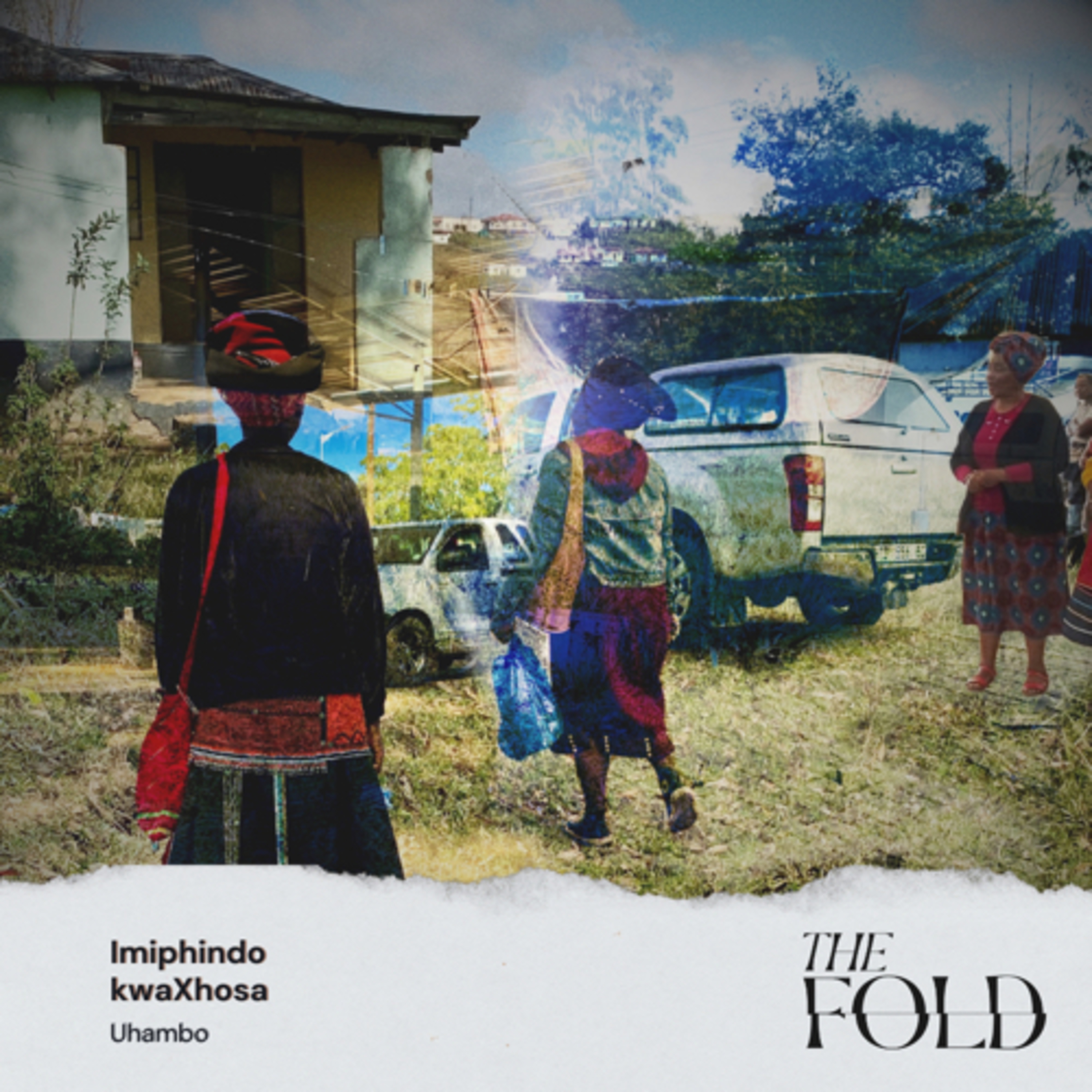 Imiphindo kwaXhosaEpisode 1: UhamboUN/FOLDING_RE/FOLDING_FOLDED: Imiphindo kwaXhosaWhat do we carry when we move through rites of passage? What dresses us, not only in fabric, but in responsibility, presence, and belonging?In Uhambo, Siviwe James begins her journey into imiphindo—the folds of Xhosa dress, memory, and becoming. This first episode listens closely to the work of clothing in ceremonial life: how garments signal shifts in status, how the body becomes a site of transition, and how wearers are re-made through isinxibo. These are not merely personal changes, but co...2023-09-0805 min
Imiphindo kwaXhosaEpisode 1: UhamboUN/FOLDING_RE/FOLDING_FOLDED: Imiphindo kwaXhosaWhat do we carry when we move through rites of passage? What dresses us, not only in fabric, but in responsibility, presence, and belonging?In Uhambo, Siviwe James begins her journey into imiphindo—the folds of Xhosa dress, memory, and becoming. This first episode listens closely to the work of clothing in ceremonial life: how garments signal shifts in status, how the body becomes a site of transition, and how wearers are re-made through isinxibo. These are not merely personal changes, but co...2023-09-0805 min SoccerMpengesi and Malesela speak after unveiling playersChippa United chairman Siviwe “Chippa” Mpengesi reckons that wednesday’s unveiling of more than 11 players marked the beginning of the season for the Port Elizabeth-based side. Apart from acquiring new players, the Chilli Boyz, who finished sixth at the end of last season, have also re-signed James Okwuosa on a three-year deal following the Nigerian-born defender’s failed move to Orlando Pirates. Mpengesi is also grateful to both the Nelson Mandela Bay and the Buffalo City metros for backing his club. Meanwhile, Mpengesi says he is quite pleased with the support the Chilli Boyz got from their supporters whenever they played a...2016-07-1502 min
SoccerMpengesi and Malesela speak after unveiling playersChippa United chairman Siviwe “Chippa” Mpengesi reckons that wednesday’s unveiling of more than 11 players marked the beginning of the season for the Port Elizabeth-based side. Apart from acquiring new players, the Chilli Boyz, who finished sixth at the end of last season, have also re-signed James Okwuosa on a three-year deal following the Nigerian-born defender’s failed move to Orlando Pirates. Mpengesi is also grateful to both the Nelson Mandela Bay and the Buffalo City metros for backing his club. Meanwhile, Mpengesi says he is quite pleased with the support the Chilli Boyz got from their supporters whenever they played a...2016-07-1502 min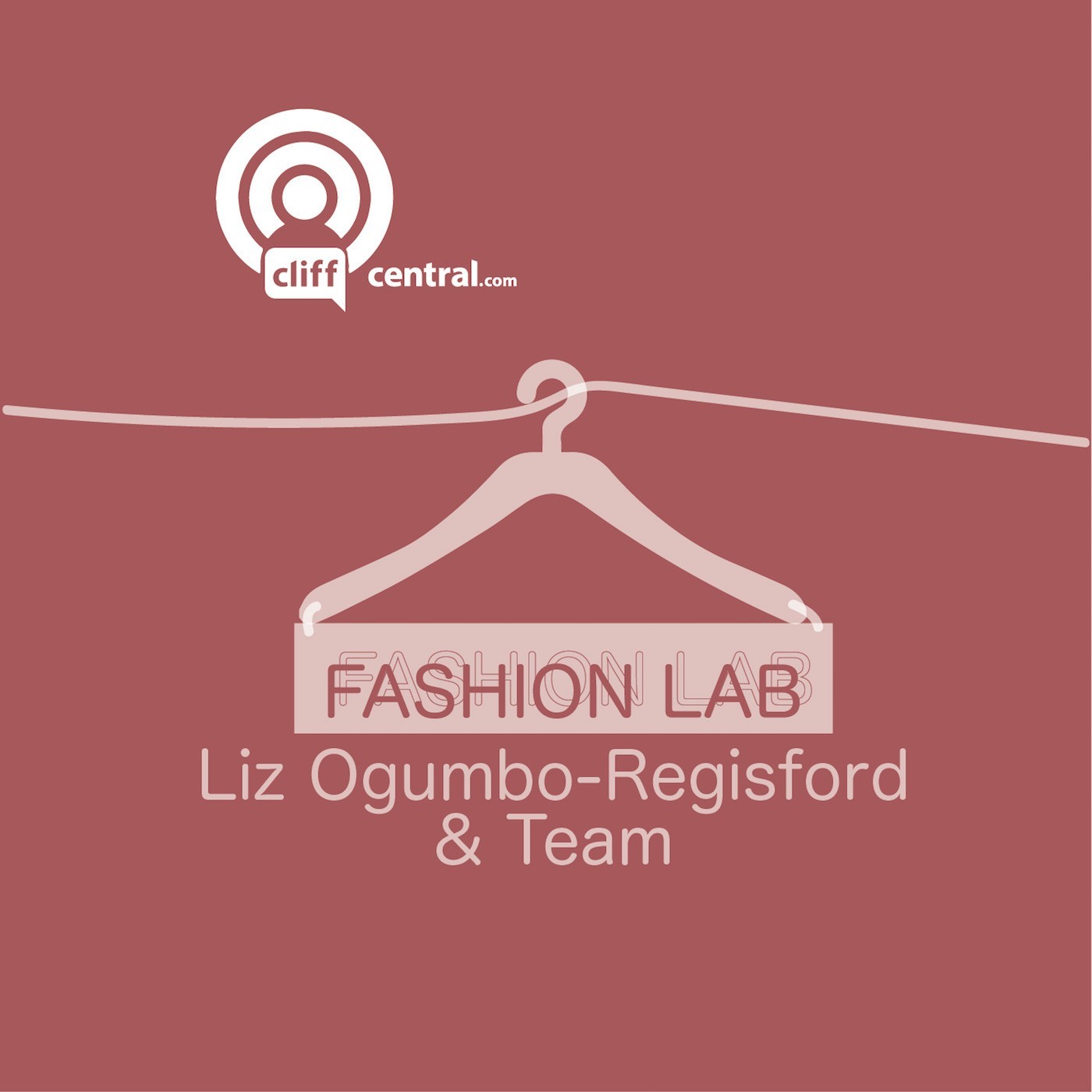 Fashion LabFashion Lab - Fashion Evolution - Part 2The African Fashion Evolution Part 2. The ever-fabulous Vanya Mangoliso and Siviwe James are in studio. Also not to be missed is the ever exciting Trend Report with Mischa Lensink.2015-12-1155 min
Fashion LabFashion Lab - Fashion Evolution - Part 2The African Fashion Evolution Part 2. The ever-fabulous Vanya Mangoliso and Siviwe James are in studio. Also not to be missed is the ever exciting Trend Report with Mischa Lensink.2015-12-1155 min The Good StuffThe Good Stuff 27.10.15Jean Elphick from Afrika Tikkun talks about the 'Paint It Purple' campaign in Orange Farm. Then fashion designer, thought leader and change maker, Siviwe Siyabulela James talks about #FeesMustFall. cliffcentral.com2015-10-2751 min
The Good StuffThe Good Stuff 27.10.15Jean Elphick from Afrika Tikkun talks about the 'Paint It Purple' campaign in Orange Farm. Then fashion designer, thought leader and change maker, Siviwe Siyabulela James talks about #FeesMustFall. cliffcentral.com2015-10-2751 min